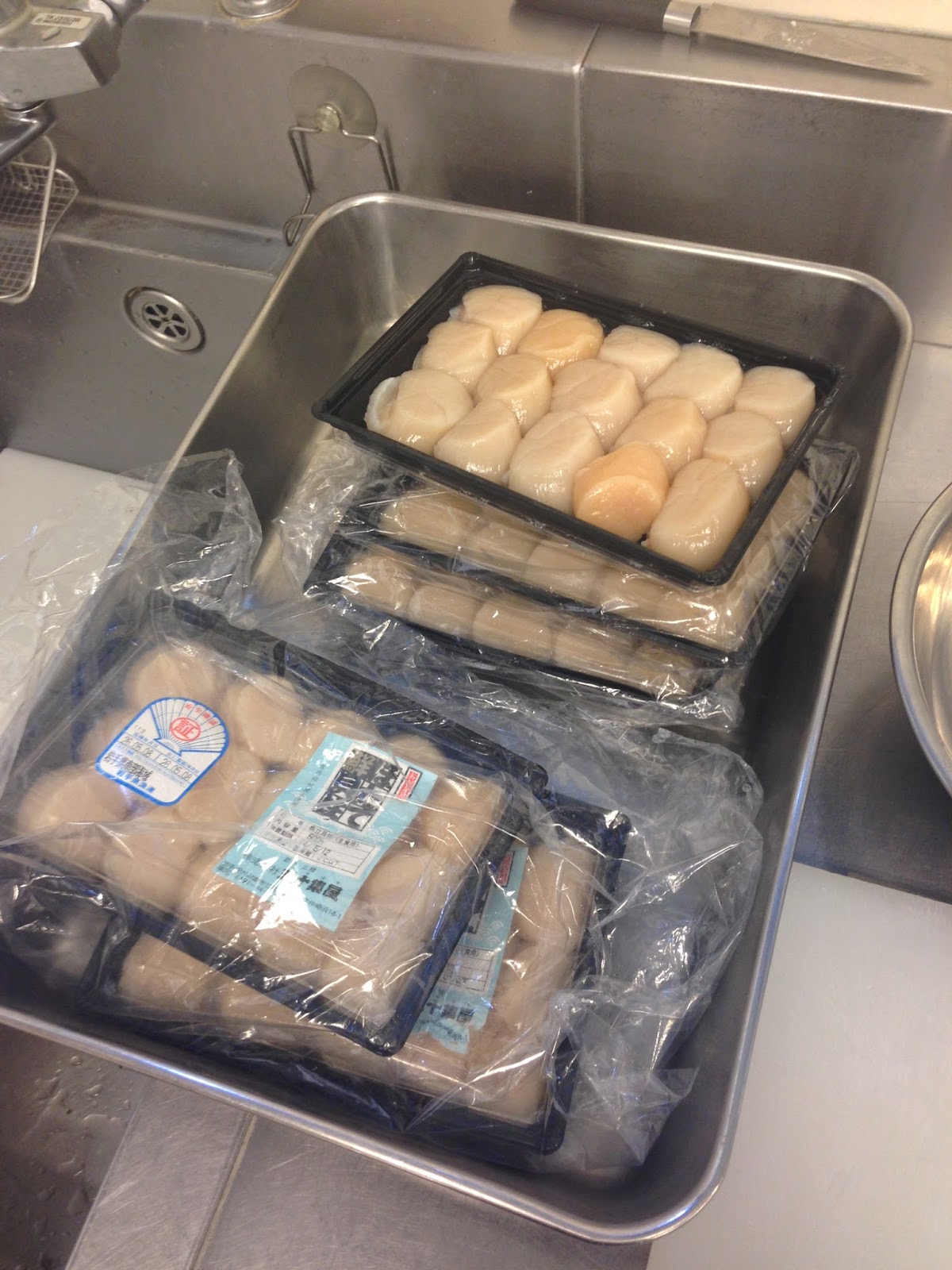So I know one of my main purposes here is to provide international exchange and share what I know and teach about my culture, but sometimes I am the one that gets to learn and those are some of my favorite days! Not only do I get to break the monotony of the work day, but I get to try something new.
During the busy season at KEEP, Seisen-Ryo will cater to their guests by setting up a casual tea ceremony in the lobby. I say casual in the sense that guests can check-in and stop by for a quick cup of green tea before heading to their room. By no means is the setup itself casual. A few of the ladies that work in the different departments of KEEP are traditional tea masters and they so graciously showed me how to prepare a proper cup of green tea. A lot more than you would think goes into this ritual which is best explained in pictures.
 |
| Sign inviting guests to come in an have a cup of tea. |
 |
| It's all about the bamboo brush to get the tea nice and frothy. |
 |
| First, I got to play the guest. You're first a served a sweet to coat your palate and prepare it for the bitterness of the tea to come. |
 |
| Enjoying my cookie. |
 |
| Receiving my cup of tea. Much different than a tea cup. The whole display of the tea ceremony coordinates with the season. The flowers there are to represent summer. |
 |
| Frothing up the tea! |
 |
| My first guests! |
Seisen-Ryo doesn't like to forget about the kids during the busy season! One of the women I work with, Hoshii-san, used to be a teacher before she came to Seisen Ryo. She has a whole stash of children's books under her desk and she puts on story time a few times a month during the summer. I got to be the special guest reader for this last time. The kids come after dinner, right before bed and we set up a story corner. This time Hoshii-san read from one of her HUGE Japanese books first.
The Very Hungry Caterpillar is a very popular book here in Japan amongst children just like back in the States which was a nice surprise seeing as it was one of my favorite books growing up too! The kids were really excited when Hoshii-san got it out and then did the old bait and switch and got out the English version for me to read. Japanese kids are extremely interested in American culture so I was pleasantly surprised how well they listened.
At the end of story time, I get to interact with the kids. The parents like their kids to practice their English they have no doubt been paying out the eyes for. We give the kids some stickers, play some rock, paper, scissors with me (which is the go to way to settle anything in the kid world here) and just hang out. Then it's off to bed for the little ones and I go home and realize teaching will never and should never be in my future.
 |
| Story time with special guest Charlotte File from America! |
 |
| Large group this night. |
 |
| Special guest reader. |
 |
 |
| All the Eric Carle books are popular! |
 |
| Rock, paper, scissors--or janken as it's called here. |
 |
| Showing me his dormouse museum pin--you can see his extensive collection of pins on his shirt. |
 | ||
| Family that comes to Seisen-Ryo every summer for vacation and know Hoshii-san well. |
Until next time,
Charlotte
Charlotte







.JPG)
.JPG)


































